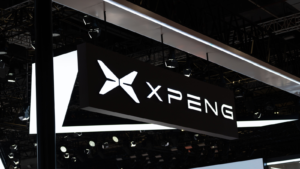China, for example, has been incredibly supportive of flying cars, giving companies the green light for development. Plus, according to The Economist, Prime Minister Li Qiang mentioned the “low altitude economy” as a potential new engine for GDP growth.
Even better, “the domestic market is now poised for an unprecedented boom,” said eHang Holdings CEO Huazhi Hu in an earnings call.
Again, if the flying car market takes off, we could be looking at a multi-trillion-dollar opportunity. Here are just a few of the best flying car stocks for that.
eHang Holdings (EH)

Oversold at $14.12, eHang Holdings (NASDAQ:EH) is one of the top flying car stocks to buy and hold.
First, Morgan Stanley just upgraded the stock to an overweight rating, with a $27.50 price target. “We view EHang as a pioneer in the urban air mobility (UAM) market €” with the world’s first [type certificate] awarded, validated products, and access to a multi-trillion [renminbi total addressable market] in China,” said the firm, as quoted by InvestorPlace.com.
Second, with China rolling out supportive policies for the low-altitude economy, “the domestic market is now poised for an unprecedented boom,” said CEO Huazhi Hu, as I also noted above.
“In response to the central government initiative, nearly 30 provincial and municipal governments have rolled out their own low-altitude economy development plans in China, accelerating the industry’s growth,” he added.
Third, with that support the company reported the delivery of 26 units as compared to 23 over the previous quarter. Better, with stronger sales expected moving forward, the company expects for its second quarter revenue to increase about 800% year over year.
XPeng (XPEV)

XPeng (NYSE:XPEV) is also starting to take flight with multiple catalysts. First, its X2 just took its first flight at the Beijing Daxing International Airport. Second, the company wants to commercialize flying cars by the end of the year. And third, China’s Guangzhou will invest more than $1.4 billion by 2027 in the “low-altitude economy,” says Nikkei Asia.
In addition, according to XPeng affiliate XPeng AeroHT, there are plans to start delivering flying cars to customers by 2026. According to company co-president Brian Gu, the cars should be available for pre-order this year starting out at $138,000 each.
Plus, earnings haven’t been too shabby. Its adjusted loss per share of 21 cents on revenue of $906.9 million was far better than expectations for a loss of 27 cents on revenue of $868.1 million. All thanks to a pickup in demand for its electric vehicles.
Joby Aviation (JOBY)

There’s also Joby Aviation (NYSE:JOBY), which has been consolidating at $4.87.
According to the company, air taxis could be a reality by 2025. Backed by a $400 million investment from Toyota (NYSE:TM) and a $60 million investment from Delta Air Lines (NYSE:DAL), JOBY is hoping to win the race in getting flying cars off the ground. In addition, JOBY will deliver two aircraft to the MacDill Air Force Base in 2025 as part of its $131 million contract with the U.S. Air Force.
Better, the company completed Stage 3 of its certification process. It’s now working on completing its for-credit testing with the Federal Aviation Administration (FAA).
The company also acquired the autonomy division of Xwing, an industry leader in the development of autonomous technology for aviation. Not only does JOBY expect this to bring it closer to “fully autonomous operations in the future,” but it also believes it’ll play a role in contracts with the U.S. Department of Defense.
On the date of publication, Ian Cooper did not have (either directly or indirectly) any positions in the securities mentioned. The opinions expressed in this article are those of the writer, subject to the InvestorPlace.com Publishing Guidelines.
On the date of publication, the responsible editor did not have (either directly or
indirectly) any positions in the securities mentioned in this article.
Ian Cooper, a contributor to InvestorPlace.com, has been analyzing stocks and options for web-based advisories since 1999.
